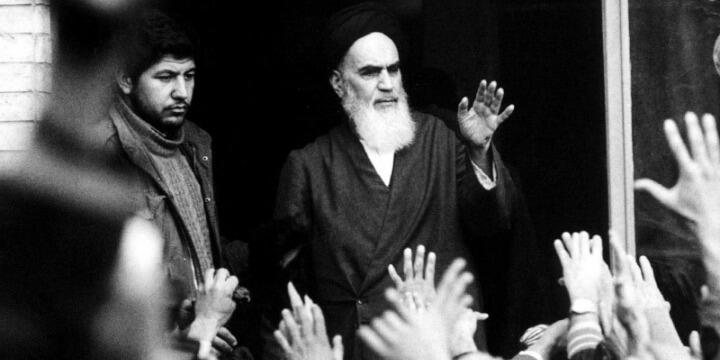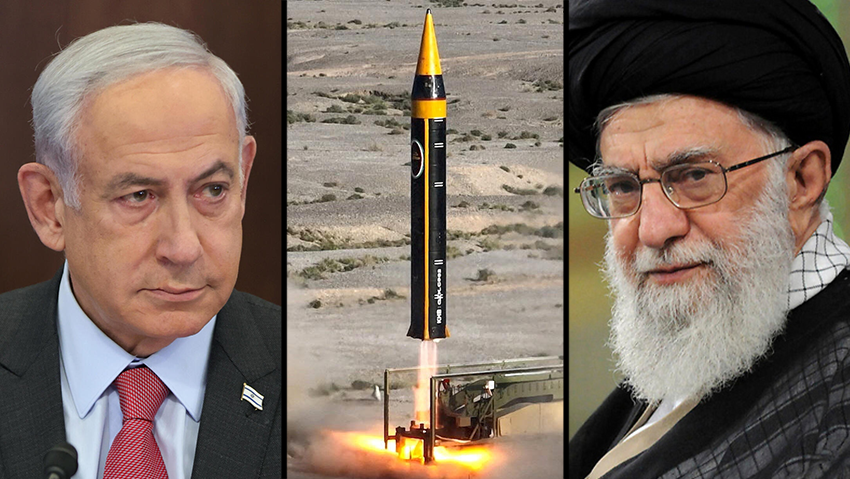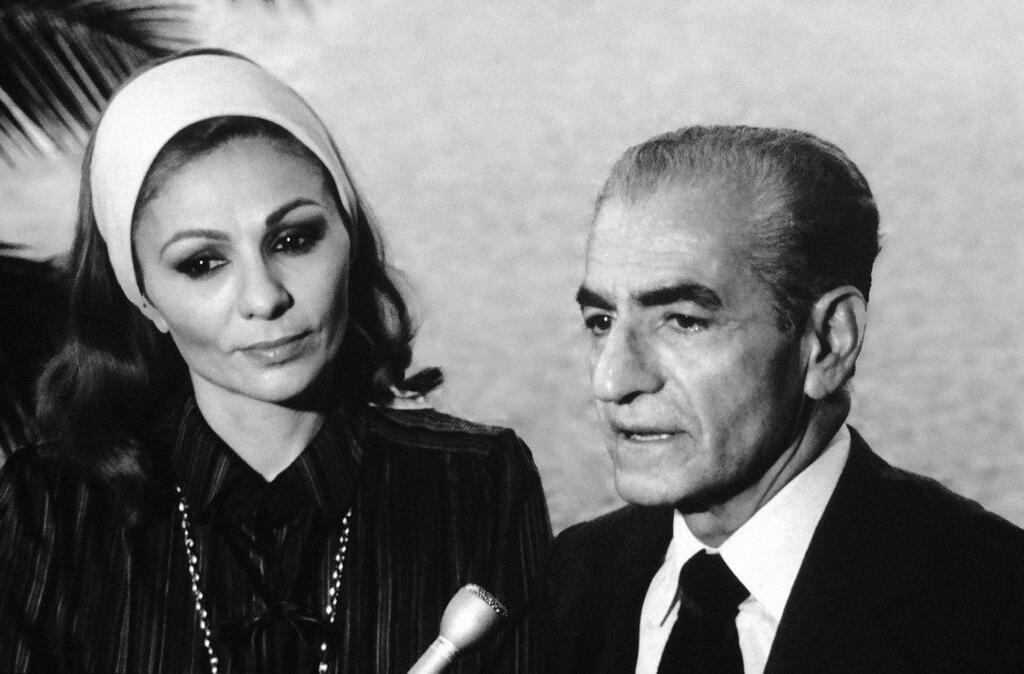Getting your Trinity Audio player ready...
Last week’s open assault by Iran on Israeli soil brought a chilling new chapter to the already fraught saga between these two nations. In what felt like a scene ripped from a high-stakes geopolitical thriller, the night skies on Saturday were alight with the ominous glow of cruise missiles, suicide drones and ballistic missiles—hundreds, in fact.
Thanks to swift actions by the Israeli Air Force and a U.S.-led defense coalition, nearly all were intercepted before they could do harm. As the conflict spilled into the wee hours of Sunday, many Israelis remained vigilant, the uncertainty of future escalations hanging heavy in the air.
This recent direct confrontation is a stark departure from the historical relationship that once existed between Iran and Israel, which, believe it or not, included robust economic and diplomatic ties. Back in the 1950s through the late 1970s, the two states were on surprisingly cordial terms. Despite voting against the UN’s 1947 partition plan that led to Israel’s creation, Iran was one of the first Middle Eastern countries to recognize Israel by 1950.
As the decades progressed, particularly toward the late 1950s and early 1960s, their bond strengthened significantly. This era of cooperation persisted almost until the Islamic Revolution in 1979, which saw the last Shah of Iran, Mohammad Reza Pahlavi, overthrown—ending an unexpected chapter of Middle Eastern diplomacy.
Despite his public criticism of Israel, particularly after the Six-Day War, Shah Mohammad Reza Pahlavi of Iran continued to foster robust trade, intelligence, and military ties with Israel. This strategic partnership was driven by mutual interests that overrode public postures. For instance, both nations shared a wary eye on Nasser’s Egypt—a regime that no fan of the Shah, to say the least—and the Soviets, whose historical conflicts with the Persian people left much to be desired.
Iran was Israel's main supply of oil
During this era, the collaboration between Iran and Israel spanned diverse sectors such as oil, trade, security, agriculture, technology, and infrastructure development. It was almost as if they were forming their own alliance, reminiscent of a Cold War-era film where unlikely partners unite against a common adversary.
Prof. Meir Litvak, head of the Center for Iranian Studies at Tel Aviv University, sheds light on this dynamic, noting that "Iran was a pivotal player in Israel’s 'Periphery Alliance' strategy conceptualized by Ben-Gurion in the 1950s. This strategy was designed to circumvent the persistent Arab hostility encircling Israel."
Litvak elaborates that "Israel supported Iran in various capacities—training its military, supplying military hardware, and even aiding in setting up the notorious SAVAK, Iran’s secret police. This cooperation extended to agriculture and regional development, with Israel sending numerous agricultural experts to Iran.
Additionally, significant exchanges in security technologies occurred, featuring major Israeli firms like Rafael and Tadiran, which exported goods worth hundreds of millions to Iran. This period saw Iran becoming Israel’s primary oil provider, often selling oil at prices above the market rate, as other suppliers shied away."
The Eilat-Ashkelon Pipeline, a hallmark of Israeli-Iranian cooperation, was established in 1968, marking a significant era of joint ventures. This pipeline, emblematic of geopolitical maneuvering reminiscent of a plot from a John le Carré novel, started pumping oil from Eilat to Haifa, initially reaching Be'er Sheva. This collaboration began in the 1950s when Iran started sending oil to Israel, setting the stage for deeper economic ties.
By 1965, with an eye on sidestepping the geopolitically sensitive Suez Canal, Israel proposed an expansion of this partnership, leading to high-stakes negotiations spearheaded by then Foreign Minister Golda Meir, who also made a diplomatic visit to Iran. The outcome was a balanced partnership that included the Israeli government and major fuel companies—Paz, Sonol, and Delek—alongside the National Iranian Oil Company.
To facilitate this venture, a network of shell companies under Israeli and Iranian control was set up. The Eilat-Ashkelon Pipeline Company, guarded by a veil of secrecy imposed by a confidentiality order, continues to operate under these clandestine terms. Only recently, the Knesset passed a revision of this order, slightly lifting the veil to allow for regulatory oversight concerning environmental protection, safety, and corporate governance.
In a twist fit for a thriller, just before Ayatollah Khomeini seized power in the Iranian Revolution, the National Iranian Oil Company halted its oil sales under the partnership but stopped short of formally ending the collaboration, thus becoming what's termed a "non-active partner." In 1981, the drama escalated as the company sued Israel, demanding half the assets of the pipeline company plus $350 million for the oil delivered pre-1979 revolution.
The ensuing legal battle, still unresolved and shrouded in secrecy, has seen the disputed funds grow to a staggering estimated seven billion dollars, according to the "Global Arbitration Review." This decades-long financial saga continues to unfold, capturing the intrigue of a global audience and reflecting the complex interplay of international relations and corporate espionage.
Other bilateral ventures
Solel Boneh, an Israeli construction and infrastructure firm, was significantly involved in various projects within Iran during that period. The company's portfolio included the construction of several hotels, notably the Tehran Hilton, as well as a housing community for American military personnel in Isfahan—a city that recently experienced an airbase attack, which many attribute to Israeli forces and see as a retaliation to an Iranian assault. Additionally, Solel Boneh was responsible for creating hundreds more residential units.
Yet, Solel Boneh wasn't the sole entity engaged in erecting buildings and pivotal infrastructure throughout Iran. A notable example occurred on November 8, 2000, when Yedioth Ahronoth's journalist Ofer Petersburg reported an intriguing development: Iranian officials, through a German businessman, reached out to the Ministry of Infrastructure seeking the sewerage system blueprints of Tehran. These plans had initially been drafted and implemented by Tahal, an Israeli governmental company, back in the 1970s.
3 View gallery


Ayatollah Ruhollah Khomeini speaking to followers in Tehran during the 1979 Islamic revolution
(Photo: Reuters)
"The Iranian government wants to renew and refurbish the city's ruined and old sewerage system, but without the original sewerage plans, which include details for future development, it would have to rebuild the entire costly and extensive infrastructure of the city," Petersburg elaborated, further noting that the Ministry of Infrastructure declined to comment "due to the sensitivity of the subject."
Collaboration between the two nations extended into the realm of sports as well. On December 26, 1966, Yedioth Ahronoth detailed plans by the Sports Association to host the Iranian women's and men's volleyball teams for a tournament in Israel. The report noted that Iranian sports officials had previously signaled their intent to visit, with expectations they would fulfill their commitments—a prospect that now appears almost fantastical.
This broad alliance spanned various sectors, yet the ties built on shared economic, social, and security interests crumbled rapidly. The fall of the Iranian Shah in 1979, just before the establishment of the Islamic Republic under Ayatollah Khomeini, precipitated an abrupt severance of ties between the two countries, leading to a historic breakdown in relations.




